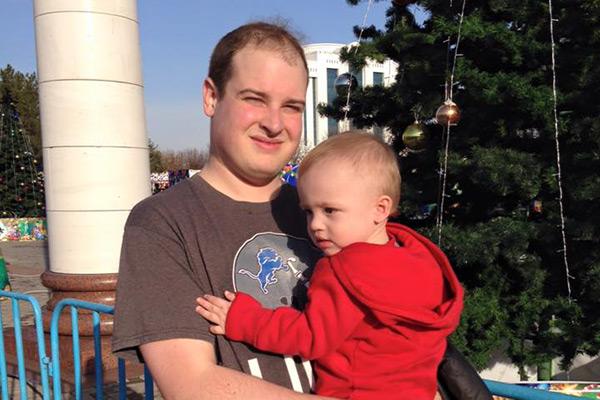December 2020 Alumni Profile: Christopher Fort

Christopher Fort, MA in Slavic and East European Studies, Class of 2012
One of the best decisions I’ve made in my post-graduate career was to get my MA at CSEES. As I prepared to finish my undergraduate degree in 2010, I knew I wanted to earn a PhD in Russian and Central Asian literature and culture, but because my plan was fairly unique, few Slavic PhD programs had interest in teaching me the skills I would need to pursue my thesis. They were ready to help with Russian literature, to be sure, but Central Asian studies was a rare beast. Many of the schools to which I applied told me they would prefer I get an area studies MA that would give me the requisite training in local languages. With that in mind, I chose OSU, which has one of the country’s few programs in Uzbek, and several instructors interested in the history and culture of Russia as an empire. At OSU, I managed to take three years of Uzbek in two, get a year of Farsi under my belt, and make critical advancements as a writer. In 2011, I published my first article on Russian literature, a piece on Lev Tolstoy, which I wrote for Dr. Alexander Burry’s class. My knowledge of Uzbek and my published article were real assets when applying for Slavic PhD programs the second time around.
This time most of the programs to which I applied accepted me, but I chose University of Michigan to work with Dr. Olga Maiorova, a specialist in Russian intellectual history and empire. Thanks to my time at CSEES, I didn’t have to take any more Uzbek courses and could now focus on acquiring a background in Persianate literature through additional Farsi classes and courses on the Persianate world. After my first year at Michigan, I received a Critical Languages Scholarship for Farsi and went to study in Tajikistan for two months, whereupon I was reunited with several of my former OSU classmates from my Uzbek and Farsi classes. Central Asian studies is a very small field. In 2015, I won a Fulbright student research award to conduct my dissertation fieldwork in Tashkent, Uzbekistan. I was the first person to win that award since 2005 when Uzbekistan cut off much of its international cooperation with the West. I like to think that I won this award again thanks to the writing skills I acquired at CSEES and later at University of Michigan. In ten years, I was the first person to write a Fulbright statement of purpose seemingly innocuous enough to be acceptable to the rather suspicious Uzbek scholarship committee.
I completed and successfully defended my dissertation on Uzbek literature of the 20th century in 2019. In my dissertation, I argue that Uzbek literature of the past century contains an archetypal plot, which hybridized with, underwrote, undermined, and eventually displaced what Katerina Clark has dubbed the “master plot” of Russian Socialist Realism. Now, as of fall semester 2020, I am teaching as an assistant professor in American University of Central Asia’s Department of General Education. Next semester, I’ll get a chance to put my knowledge of Central Asian literature to use in the classroom, when I, alongside several colleagues, will lead a course on the classic literature of the Silk Road and how it has been appropriated by empires and nation states in the 20th century.
